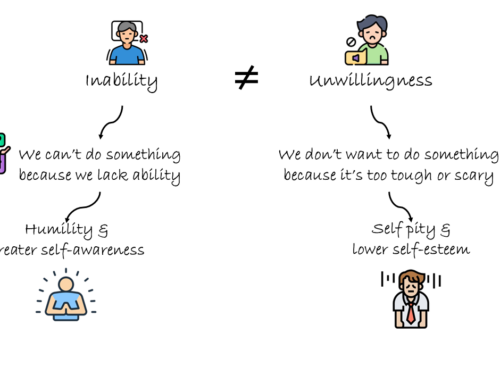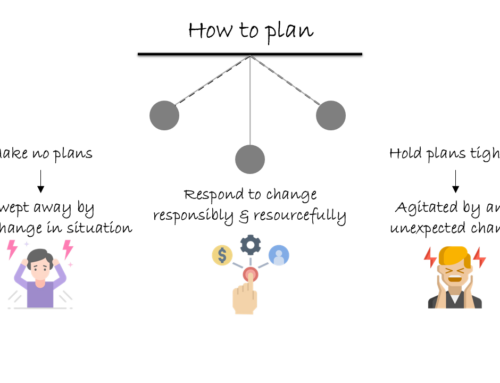We feel stressed not so much because we are over-worked as because we are over-worried
Stress is rampant in today’s society. Why? One common explanation is over-work.
But is over-work the only cause? At least three points suggest otherwise:
- Nowadays, machines do many things that we ourselves had to do earlier.
- Even people who don’t do much work sometimes complain of stress.
- Even people who are on vacation without any pressing obligation sometimes feel stressed.
What, then, primarily causes stress? Let’s consider our own experience of stress. We usually feel stressed when we are doing one thing but are obsessing over all the other things we need to do. Right now, we have no control over those future to-dos, yet we are trying to control them. Struggling to control the uncontrollable is the recipe for worry. Too much worrying stresses us far more than too many to-dos.
Why are we obsessed with over-controlling things? Two main reasons:
- Modernization and mechanization have increased our capacity to control things, thereby increasing our illusion that we are meant to be controllers.
- Secularization has decreased our awareness of any higher controller.
When we think that no one is in control if we are not in control, such spiritual ignorance about the supreme controller keeps us over-worried. Pertinently, Bhagavad-gita (18.35) indicates that spiritual ignorance causes fearfulness.
To counter such ignorance, Gita wisdom offers two empowering insights:
- We are essentially souls who are indestructible – the many things that threaten us can’t hurt our core.
- Krishna is the omnibenevolent supreme controller; even if things go wildly out of control, he can still bring good out of the bad. We just need to do our part by acting in a mood of loving service to him.
By spiritual knowledge and practice, when we internalize these twin truths, we gradually gain an armor of inner calm that shields us from stress.
Think it over:
- Over-work is not the only cause of stress – why not?
- Why are we obsessed with over-controlling things?
- How can Gita wisdom provide us a shield from stress?
To know more about this verse, please click on the image
Explanation of article:
https://www.youtube.com/watch?v=k-j6lLXtj5w
Podcast:






Leave A Comment